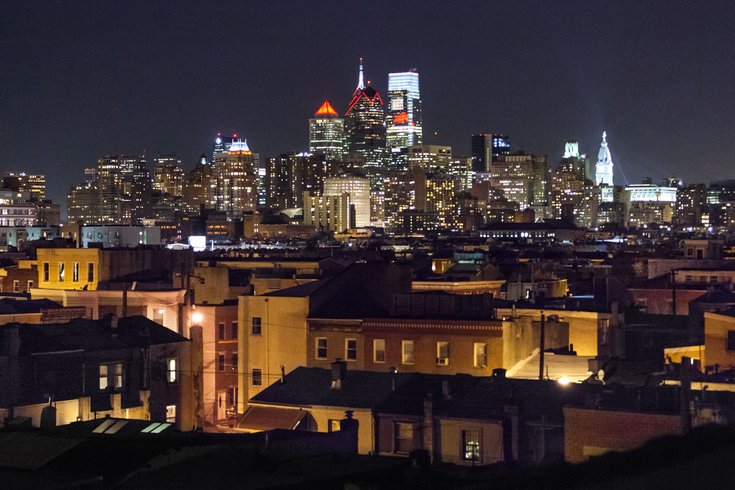
March 11, 2021
 Thom Carroll/for PhillyVoice
Thom Carroll/for PhillyVoice
Prominent buildings in the Philadelphia skyline — including the Comcast Technology Center and Comcast Center, Liberty One and Liberty Two — have pledged shut off their lights from midnight to 6 a.m. during peak bird migration seasons. Light pollution is a common source of unnecessary deaths among birds as they navigate urban environments and collide with buildings.
A group of Philadelphia property owners are joining a national "Lights Out" initiative to prevent the unnecessary deaths of thousands of birds who are blinded by the city's artificial lights as they complete their spring and fall migration journeys.
Starting April 1, several prominent buildings in Philadelphia will switch off lights from midnight until 6 a.m. The first phase of the program will run through May 31.
The new coalition, dubbed Bird Safe Philly, comes in the wake of last October's deadly mass collision in Center City. More than 1,000 migratory birds slammed into buildings, disoriented by light pollution, and left a grisly display on city sidewalks the following morning.
Species most commonly killed during these events are ovenbirds, common yellowthroats, white-throated sparrows, black-throated blue warblers and gray catbirds.
The Audubon Society called last year's event Philadelphia's largest mass collision in 70 years. When they occur at that scale, there are often confounding weather patterns that further reduce visibility and confuse migrating birds, who are especially prone to reflections in windows.
Notable buildings participating in Lights Out Philly include BNY Mellon Center, Comcast Technology Center, Comcast Center, Jefferson Center, One South Broad, One Liberty Place, Two Liberty Place and 1515 Market Street.
During the hours covered by the program, these and other buildings will shut off lights on upper levels and in lobbies and atriums. External lighting will either be turned off or dimmed.
Comcast and Brandywine Realty Trust, two of the city's most prominent building owners, are joined by a dozen other owners and operators who have pledged support to the cause.
Lights Out Philly is the result of a collaborative effort by the Academy of Natural Sciences of Drexel University, Delaware Valley Ornithological Club, Audubon Mid-Atlantic and two local Audubon Soceity chapters in Valley Force and Wyncote.
Joining the effort is Philadelphia’s Office of Sustainability, the Building Owners and Managers Association and the Building Industry Association of Philadelphia. Two City Councilmembers, Katherine Gilmore Richardson and Kenyatta Johnson, introduced a resolution in support of the initiative.
"We are heartened by all the efforts in our community to join together in this critical initiative to save so many birds from unnecessary harm and even death," said Scott Cooper, president and CEO of the Academy of Natural Sciences. "A simple thing like turning out lights can help thousands of birds safely navigate our challenging urban environment."
A second Lights Out period in Philadelphia will likely follow sometime between mid-August and mid-November, when peak migration picks back up as birds fly south for the winter.
Philadelphia now joins 33 other cities who have initiated similar Lights Out programs, including New York, Chicago, Atlanta, Baltimore, Wilmington and Washington, D.C.